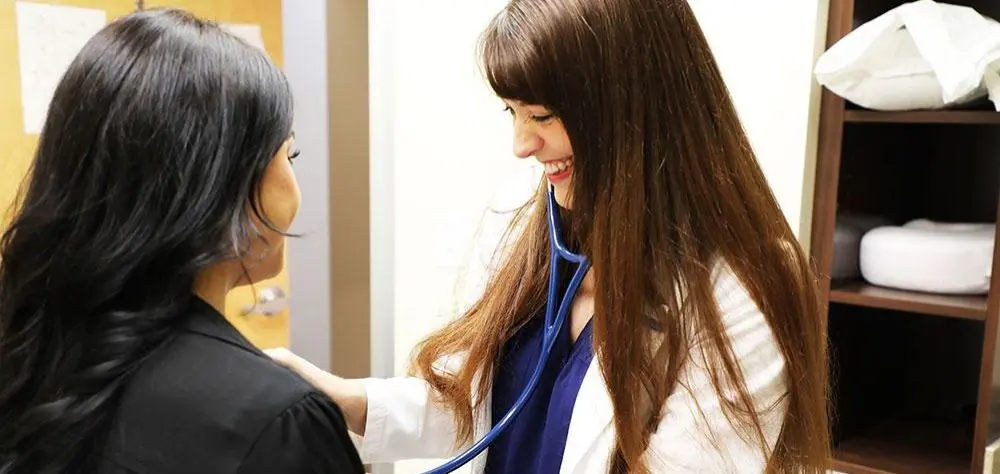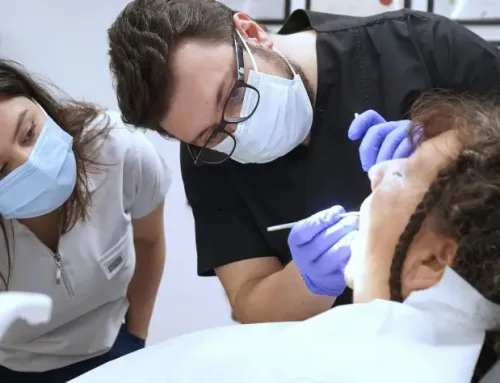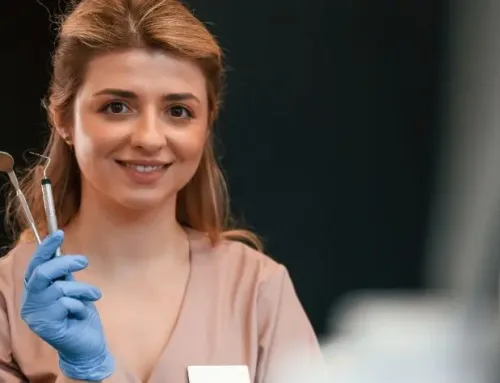MSMS Acceptance Rate: What Applicants Need to Know for a Competitive Edge

Getting into medical school is tough, as only about 40% of applicants make the cut each year, leaving thousands looking for ways to boost their chances. Designed to mirror the rigor of a first-year medical curriculum, an MSMS helps students prove their academic readiness, making them more competitive candidates for medical, dental, veterinary, and other healthcare programs.
But just like med school, MSMS programs can be competitive. MSMS acceptance rates vary depending on the program, your academic background, and other key factors. So, what does it take to get in? And more importantly, how can you set yourself up for success? Let’s dive into what you need to know.
Is an MSMS Right for You? Understanding Admissions & Acceptance Rates
Medical school admissions are cutthroat—thousands of smart, capable students get rejected every year. If you’re one of them (or trying to avoid becoming one), an MSMS might be your best move. But not all MSMS programs are the same, and getting in isn’t a given. Let’s break down what these programs offer, how they compare to other post-baccalaureate options, and what it actually takes to get accepted.
What is an MSMS, and How is it Different from Other Post-Bacc Programs?
A Master of Science in Medical Science (MSMS) isn’t just another post-bacc program—it’s a direct response to what medical schools are really looking for: proof that you can handle med school-level coursework. Unlike general post-bacc programs, which often focus on retaking prerequisites or filling in gaps, an MSMS mimics the first year of medical school. That means high-stakes exams, fast-paced learning, and a real chance to show admissions committees you can keep up.
Here’s the difference in simple terms:
- Traditional Post-Bacc – Good for career changers or students who need to complete med school prerequisites.
- MSMS – Best for students who need to boost their academic credentials and prove they can handle med school rigor.
If your undergrad GPA isn’t where you want it to be, or you need to show you can excel in a med school setting, an MSMS is designed for exactly that.
How an MSMS Can Bridge the Gap for Med School Applicants
Every year, tens of thousands of students don’t make the cut for medical school. Some were close but needed a little more academic firepower; others underestimated just how competitive the process is. Either way, an MSMS offers a second shot—but only if you make it count.
This isn’t just about padding your resume. A strong MSMS performance can:
- Prove you can handle med school coursework – You’ll take classes that mirror a first-year MD/DO curriculum.
- Offset a lower GPA – A solid performance in an MSMS can help admissions committees look past weaker undergrad grades.
- Boost your MCAT prep – Many MSMS programs integrate MCAT-style exams and test-taking strategies.
- Open doors – Some programs offer direct pathways or guaranteed interviews with medical schools.
What Affects MSMS Acceptance Rates?
Not all MSMS programs are equally competitive. Some have high acceptance rates and cater to students who need more academic support. Others are just as selective as med school itself. So, what matters most when applying?
GPA & MCAT Cutoffs
Some MSMS programs require a 3.0 GPA minimum, while others expect closer to a 3.5. MCAT requirements vary too—some programs have cutoffs, while others don’t require it at all. The key? Know what kind of student the program is designed for.
At SCU, our minimum GPA requirement is 2.7 on a 4.0 scale, and we consider exceptions on a case-by-case basis. If you’re serious about improving your med school chances, we’re serious about giving you that opportunity.
Science vs. Non-Science Backgrounds
Worried you didn’t major in biology? Some MSMS programs welcome students from diverse academic backgrounds, while others expect a strong foundation in the sciences. If your undergrad major was outside the sciences, look for programs that offer additional support in core subjects.
Letters of Recommendation & Personal Statements
It’s surprising how many applicants overlook these. A glowing letter from a professor or healthcare professional can set you apart, especially if your academic record isn’t perfect. And your personal statement? It’s your chance to explain why an MSMS is the right next step—not just a fallback plan.
Program Reputation
Not every MSMS degree carries the same weight. Look at where graduates end up—what percentage actually get into med school? If a program has strong partnerships with medical schools or offers direct interview opportunities, that’s a huge plus.
An MSMS can be a game-changer, but only if you use it wisely. Getting accepted isn’t just about meeting the minimum requirements—it’s about showing you’re ready for med school. Know what programs look for, position yourself as a strong candidate, and choose a program that aligns with your goals.
The Reality Check: How Hard Is It to Get Into Med School?
Med school admissions are brutal. The average MD acceptance rate? Just 36-40%. DO schools are slightly more forgiving, but thousands of well-qualified students still get rejected every year. If you’re serious about becoming a doctor, you need more than just ambition—you need a plan.
Med School Acceptance Rates: The Cold, Hard Numbers
AAMC data paints a clear picture: most med school applicants don’t get in. In a typical cycle:
- MD programs accept about 36-40% of applicants.
- DO programs are slightly higher, around 41-44%.
- Even with a 3.7+ GPA and a solid MCAT score, acceptance isn’t guaranteed.
If your GPA or MCAT is below the average for admitted students, your chances drop even further. And reapplicants? They often face an even tougher uphill battle unless they’ve made significant improvements to their application.
How an MSMS Can Boost Your Med School Chances
A strong MSMS program does two things:
- Proves you can handle med school coursework – Admissions committees don’t have to guess if you’re ready; they’ll see it in your transcript.
- Gives you a fresh academic start – A high MSMS GPA can sometimes override a weaker undergrad record.
Med school is very competitive—most applicants won’t get in on their first try. An MSMS can be a powerful way to turn things around, but only if it’s the right program. Be strategic, demand real success data, and make sure your next move actually moves you forward.
How SCU’s MSMS Prepares You Like No Other Program
Not all MSMS programs are built the same. Some pile on extra coursework without actually improving your med school chances. Ours? It’s designed for students who need more than a transcript boost—we prepare you to think, study, and perform like a med student before you even apply.
We Teach Med School Before You Get There
The hardest part of medical school isn’t getting in. It’s keeping up once you’re there. That’s why our MSMS program is a first-year med school experience, taught at a graduate level, designed to help students transition seamlessly into MD, DO, dental, PA, veterinary, and other professional programs.
- Flexible formats – 11-month hybrid remote formats, and 20-month online, so our students can pick what works best for them.
- Rigorous coursework – Core biomedical sciences, taught at a med school pace.
- USMLE-style testing – From day one, students are exposed to the kind of questions they’ll see on future board exams.
When our grads start med school, they aren’t just prepared; they’re ahead of the game.
We Focus on Med School Readiness, Not Just a Stronger Transcript
A good GPA helps, but medical schools are looking for more than just numbers. They want to know if an applicant can keep up with the demands of medical education. That’s why we’ve built our MSMS to measure progress in a way that actually matters.
- Real-time learning feedback – Our technology tracks comprehension, identifies weak spots, and predicts students’ readiness for the USMLE Step 1.
- Dedicated faculty advisors – One-on-one support to help students strengthen their academic profile and applications.
- Guaranteed interview opportunities – Eligible graduates receive guaranteed interviews with our medical school partner institutions and our Physician Assistant program.
A strong MSMS should give students a real shot at medical school. Ours is structured to do exactly that, with:
- A curriculum that medical schools respect – Because it mirrors their own.
- A clear path forward – With guaranteed interviews for eligible graduates.
- A fixed tuition guarantee – No unexpected increases halfway through.
- Federal financial aid and scholarship opportunities – Making it accessible to more students.
Our students don’t complete the program wondering if they’re ready for medical school. They know.
Ready To Be the Applicant Med Schools Can’t Ignore?
Medical school admissions are relentless, and the MSMS acceptance rate at different programs can tell you a lot about whether they actually help students get in. At SCU, we don’t just offer another degree—we offer a structured, med-school-style experience designed to prepare students for the real thing. From a rigorous curriculum to real-time academic support and guaranteed interview opportunities, our MSMS is built for students who are serious about getting ahead.
If you’re looking for a program that will challenge you, support you, and give you a real shot at medical school, this is it. Take a look at our admission requirements and apply today.
FAQs
What’s considered a good MSMS acceptance rate?
It depends on the program. Some MSMS programs are highly selective, while others are more flexible. What matters more is how many graduates actually get into medical school—that’s the real success metric to look at when evaluating a program.
Can an MSMS improve my chances of getting into medical school?
Yes, but only if you choose the right one. A strong MSMS program shows medical schools you can handle the workload and gives you the support to improve your GPA, test scores, and overall application. Some even offer guaranteed interview opportunities with partner schools.
Do I need to take the MCAT to apply for an MSMS?
Not always. Some programs require it, some don’t. If your MCAT score is weak, an MSMS can be a smart way to build a stronger academic record before retaking it. Always check the specific requirements for the program you’re considering.
What GPA do I need to apply to SCU’s MSMS?
We require a minimum undergraduate GPA of 2.7, but exceptions are considered on a case-by-case basis. If you’re committed to proving your academic readiness, we encourage you to apply.
Will my MSMS coursework at SCU be respected by medical schools?
Yes. Our curriculum is designed to closely match the first year of medical school, which helps students transition smoothly into MD, DO, dental, PA, and other professional programs. Our focus is on academic rigor and med school readiness.
Related Posts




